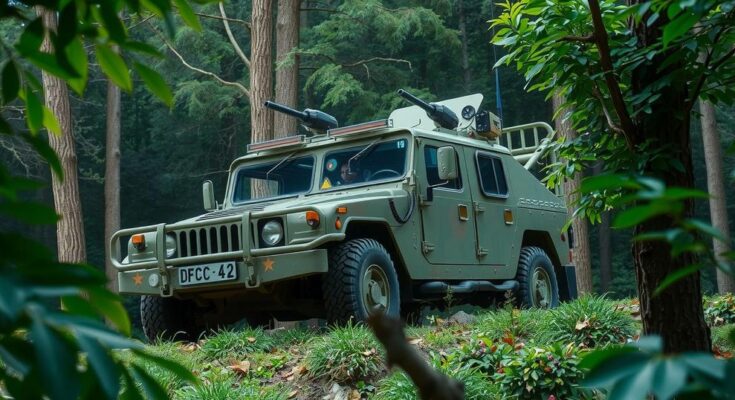The DRC army, with its allies, has effectively halted M23 rebel advances in Walikale-Centre, prompting civilian displacement to neighboring villages. Concurrently, EAC and SADC ministers have developed a roadmap to address the conflict, focusing on immediate peace measures while navigating complex regional dynamics involving Rwanda.
The Democratic Republic of Congo (DRC) army, alongside its allies, has successfully halted the advances of the M23 rebels and the Alliance Fleuve Congo (AFC) toward Walikale-Centre. On March 17, military reinforcements from Bunia played a crucial role in pushing the rebels back to Mpofi, approximately 52 kilometers from the center. Although calm returned on March 18, the area remains heavily militarized, leading to a noticeable absence of civilians in the streets.
As conflict escalated, many residents have begun relocating to nearby villages along the national highway to Kisangani. Displaced individuals have found refuge in Losso, Mungele, Tingitingi, Lubutu Mubi, Ndjingala, Lobu, and Makana, which border North Kivu and Maniema. This surge of displaced persons highlights the ongoing humanitarian crisis resulting from the conflict in the region.
Moreover, ministers from the East African Community (EAC) and the Southern African Development Community (SADC) convened in Harare, Zimbabwe, on March 17 to adopt a roadmap aimed at addressing the DRC conflict. Although the resolution did not explicitly reference Rwanda’s alleged support of the M23, it outlines immediate measures to de-escalate tensions and foster peace.
The roadmap proposes a series of actions that include facilitating direct dialogue among the conflicting parties, fostering an unconditional ceasefire, and ensuring humanitarian agencies can operate freely. To guarantee adherence to these measures, a joint verification mechanism involving SADC and EAC will be established to monitor the cessation of hostilities.
In addition, a technical evaluation team composed of 12 to 16 experts will assess security and humanitarian conditions in North Kivu and South Kivu. This team, consisting of skilled professionals in various military and logistical fields, aims to evaluate critical infrastructures and the overall humanitarian landscape. Despite the reluctance to acknowledge Rwanda’s role, numerous United Nations reports indicate its military involvement alongside M23 forces.
The ongoing unrest in eastern DRC stems from historical tensions, particularly following the Rwandan genocide of 1994. The DRC has long accused Rwanda of attempting to seize its invaluable natural resources amid the conflict that has plagued the region for decades. The DRC army, aided by Wazalendo allies, remains committed to maintaining stability and safeguarding the interests of its citizens in a tumultuous environment.
In summary, the DRC army’s intervention has successfully halted the M23 rebel advance, restoring a degree of calm in Walikale-Centre. Displacement issues continue to alarm as residents flee to nearby villages. Concurrently, the EAC and SADC have formed a strategic roadmap to address the ongoing conflict, emphasizing dialogue and humanitarian access. The regional instability remains complex, notably due to Rwanda’s unacknowledged involvement, necessitating vigilance in monitoring peace efforts.
Original Source: humanglemedia.com




